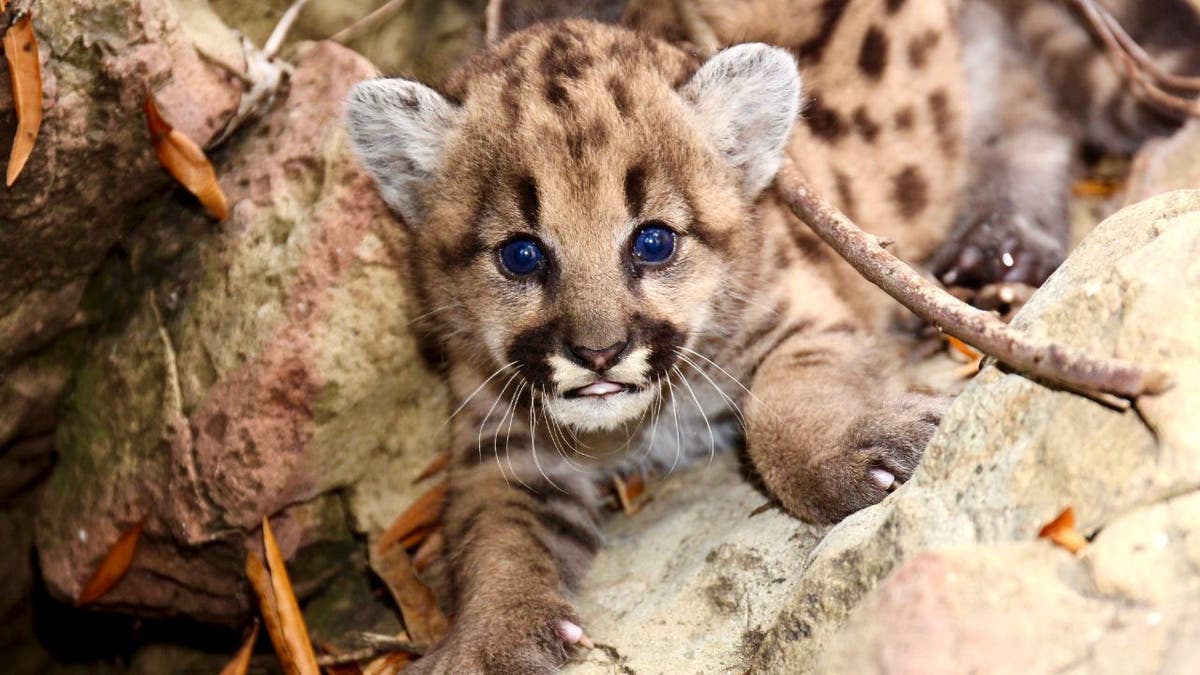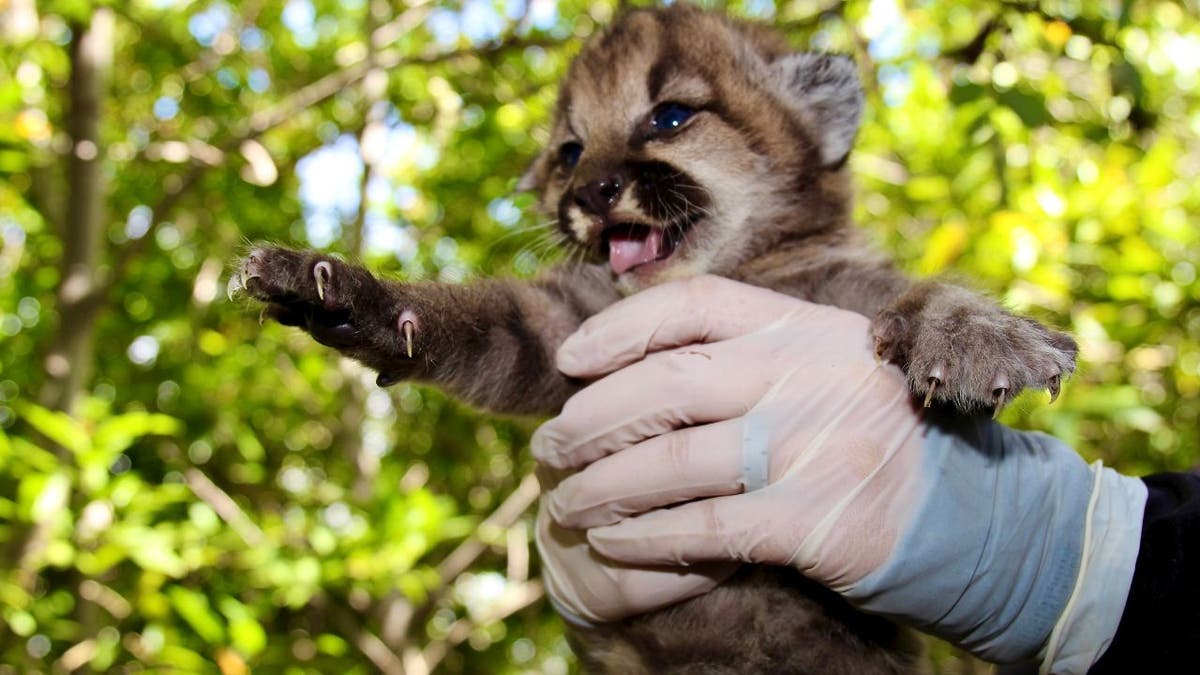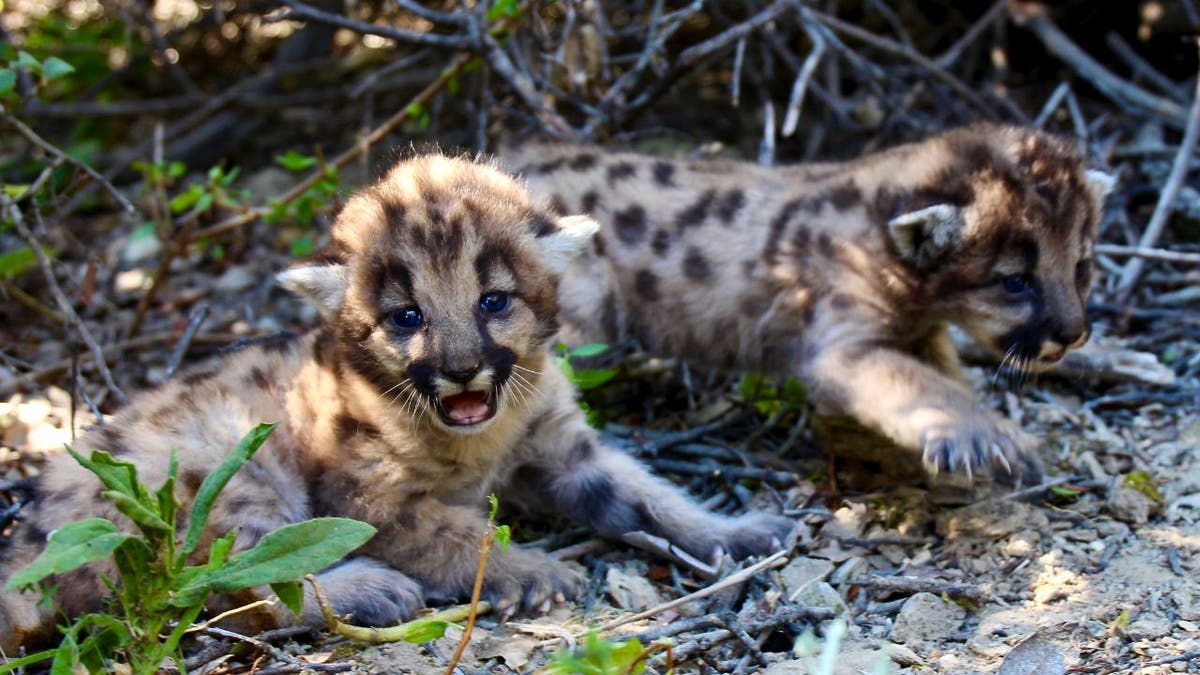This summer has been “the cat’s meow” when it comes to mountain lion kittens.
National Park Service biologists in California said they found an unprecedented 13 kittens born to five mothers between May and August in the Santa Monica Mountains and Simi Hills. It’s the first time researchers have found so many mountain lion kittens born in the 18 years they’ve been studying the wild cats.

Biologists in California said they found an unprecedented 13 kittens born to five mothers between May and August in the Santa Monica Mountains and Simi Hills. (National Park Service)
BEARS REPEATEDLY BREAK INTO CALIFORNIA STORE AND STEAL SNACKS, VIDEO SHOWS
The National Park Service labeled it a “summer of kittens.”
“This level of reproduction is a great thing to see, especially since half of our mountains burned almost two years ago during the Woolsey Fire,” wildlife biologist Jeff Sikich said.

It’s the first time researchers have found so many mountain lion kittens born in the 18 years they’ve been studying the wild cats. (National Park Service)
COMPANY PAYING $1,000 TO GO CAMPING AT NATIONAL PARK, ALBEIT WITH NO ‘TECHNOLOGY’ OR INTERNET ACCESS
The scientists have been studying mountain lions around the Santa Monica Mountains in order to learn how the animals “survive in a fragmented and urbanized environment,” according to the NPS.
To check on the kittens, the scientists wait until the mother mountain lion leaves her den to hunt. They perform a health check, determine the sex of each kitten, take body measurements and samples and tag them for future identification, according to the NPS.

To check on the kittens, the scientists wait until the mother mountain lion leaves her den to hunt. (National Park Service)
CLICK HERE TO GET THE FOX NEWS APP
“It will be interesting to see how these kittens use the landscape in the coming years and navigate the many challenges, both natural and human-caused, they will face as they grow older and disperse,” Sikich said.
The state of California considers mountain lions a “specially protected species,” but animal activists have called for the cats to be labeled an “endangered species,” which would prompt new measures to preserve them.

The scientists have been studying mountain lions in order to learn how the animals “survive in a fragmented and urbanized environment." (National Park Service)
CLICK HERE TO SIGN UP FOR OUR LIFESTYLE NEWSLETTER
Earlier this year, state officials did take preliminary action that could lead mountain lions being considered endangered in 2022, the Los Angeles Times reported.
The Center for Biological Diversity has supported the move, pointing to a study published last year,that found mountain lion populations could dwindle in a little more than a decade because of human-related factors like collisions with cars and eating rat poison.
“Without a clear legal mandate to protect mountain lions from the threats that are killing them and hemming them in on all sides, these iconic wild cats will soon be gone from Southern California,” Tiffany Yap, a biologist at the center, previously said in a written statement.
